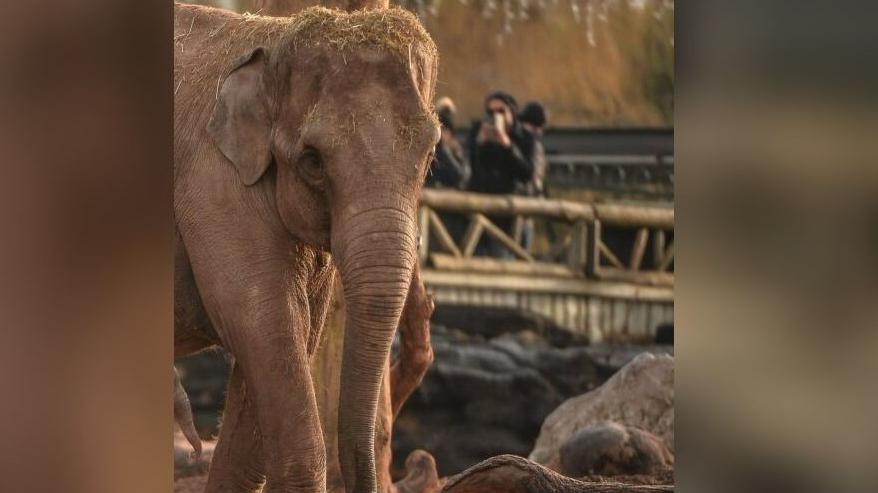Rare monkey twins born at Chester Zoo
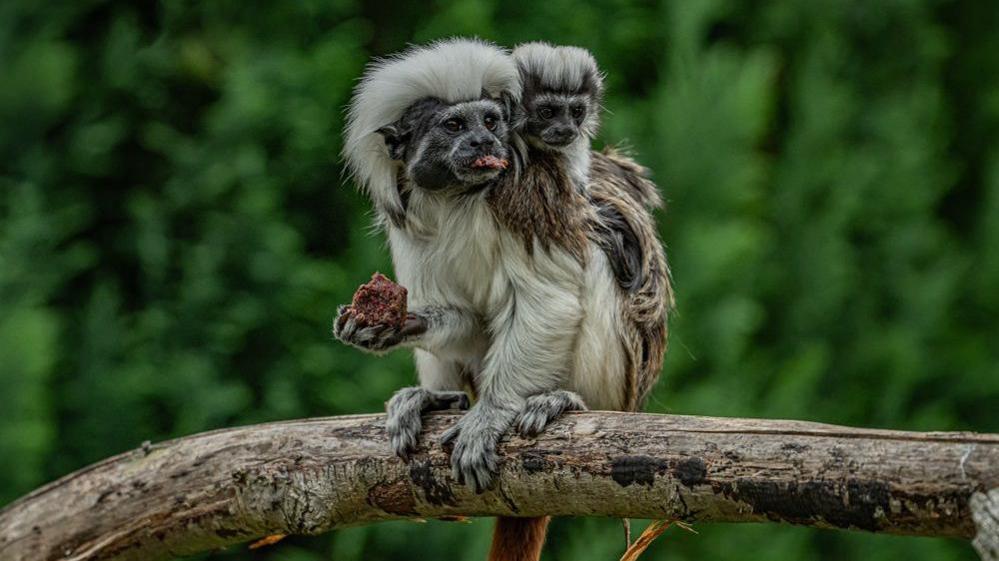
Conservationists say the new arrivals will play a vital role in the survival of the species
- Published
Two critically-endangered monkeys have been born at Chester Zoo.
The Cheshire zoo said the twin cotton-top tamarin monkeys were born to parents Leo and Treat, following a five-month pregnancy.
Weighing 40g at birth and measuring 10cm (3.9in) from their heads to the tips of their tails, they were said to be about the size of golf balls.
Mike Jordan, animal and plant director at the zoo, said their arrival is "really important" for the species as they are "exceptionally rare".
Called cotton-top tamarins due to the striking mane of white fur that runs from the forehead to shoulders and resembles a fluffy cotton ball, the monkeys are instantly recognisable for their unique appearance, zoo conservationists said.
Mr Jordan said: "Mum and dad have been sharing parental duties and as a result the little ones are both thriving.
"It’s still early days, so the babies are too tiny for us to confidently determine if each of them is male or female but, in a few months’ time, we’ll know for sure when they grow in confidence and start to branch out and explore the treetops on their own."
Cotton-top tamarins use a system of facial expressions and more than 38 different vocalisations to call their young, defend their territory, and warn the family group of predators.
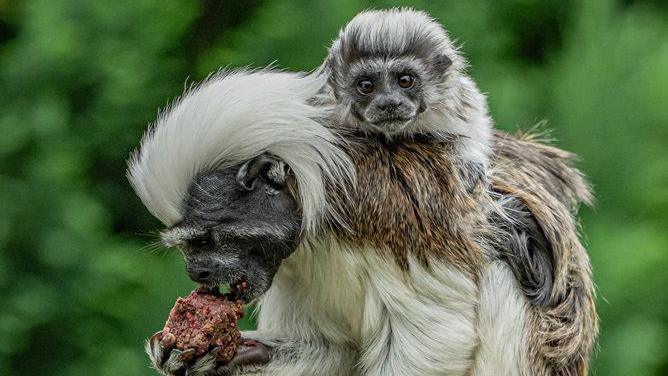
Two twin cotton-top tamarins are among eight at Chester Zoo
Chester Zoo is part of a Europe-wide plan to prevent the species from disappearing altogether due to a major decline caused by them being captured and sold as pets.
In their native Colombia, only 5% of their original habitat remains intact due to mass logging for the agriculture, paper and timber industries.
As a result, the species is listed as critically endangered on the International Union of Conservation and Nature’s (IUCN) Red List of the world’s most threatened species.
It is estimated that just 2,000 remain in the wild, making them one of the rarest primate species on earth, Chester Zoo said.
Listen to the best of BBC Radio Merseyside on Sounds and follow BBC Merseyside on Facebook, external, X, external, and Instagram, external. You can also send story ideas to northwest.newsonline@bbc.co.uk, external
Related topics
Related stories
- Published2 August 2024
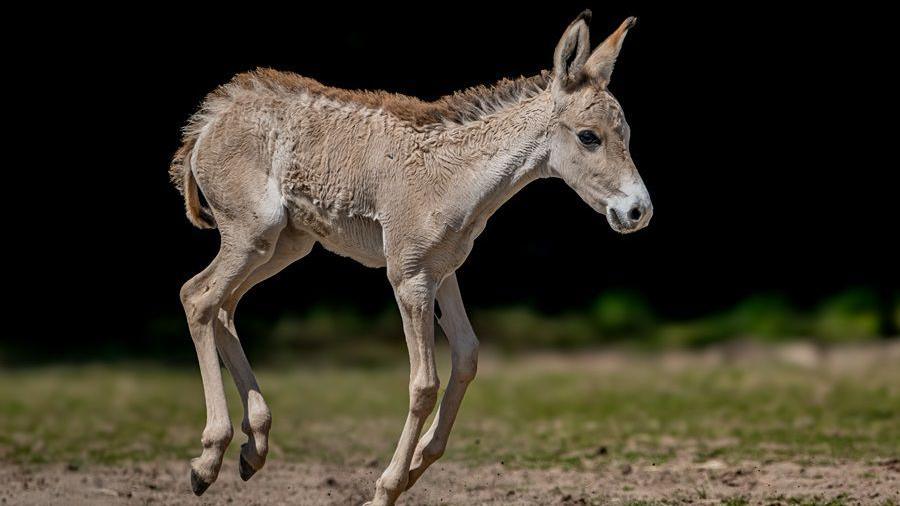
- Published26 July 2024
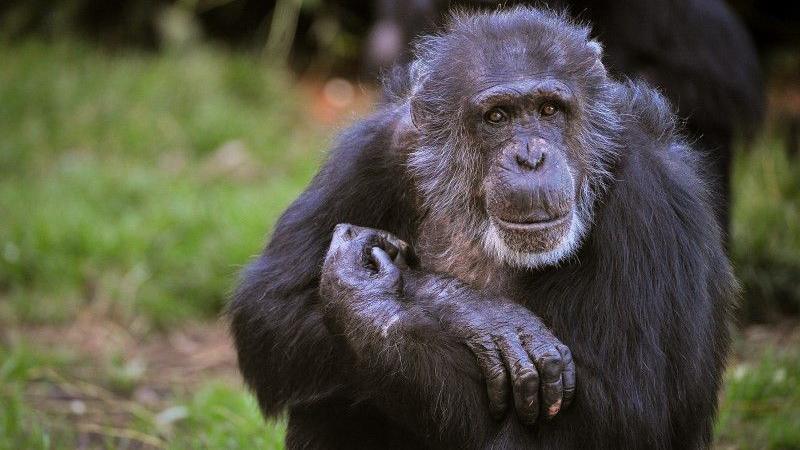
- Published25 July 2024
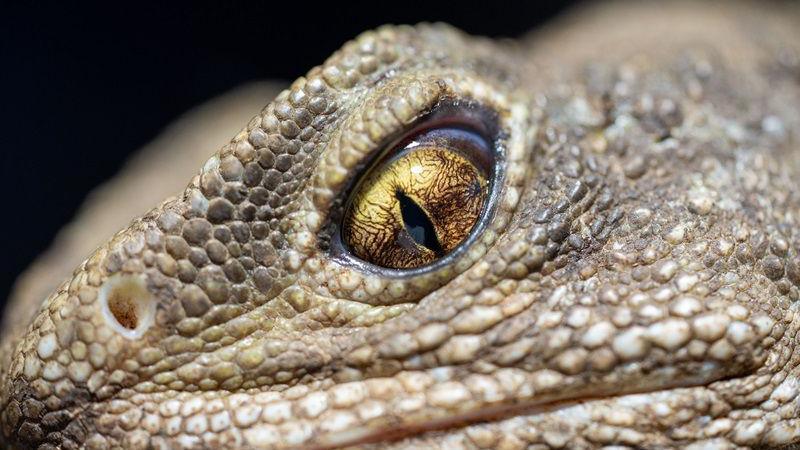
- Published23 July 2024
